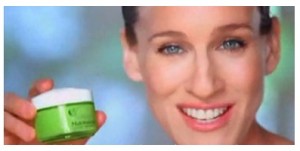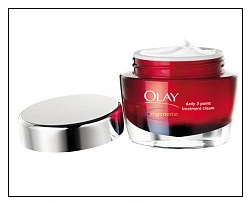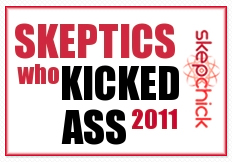In the UK, a television advertisement for Olay Regenerist Face Cream has been banned for using bogus science.
Claims in the ad that “pentapeptides” could reduce the appearance of visible lines and could be used as a substitute for cosmetic surgery were deemed misleading.
In the ad, a voice-over from UK beauty journalist Eve Cameron said: “Women who aren’t ready for cosmetic injections constantly ask me to recommend a skin cream that really works”.
“So I was excited when this study, revealed at the World Congress of Dermatology, showed that pentapeptides are effective in reducing the appearance of lines and wrinkles.”
The Advertising Standards Authority upheld a complaint challenging the evidence for the effectiveness of pentapeptides in skin care products.
However, this is not the first time expensive “cosmeceuticals” have been declared a rip-off.
In 2007, a consumer organisation in the UK known as Which? Magazine found skin care companies were “blinding consumers with science” using terms like nanoparticles, pentapeptides, lipopeptides and hyaluronic acid. These are all legitimate scientific words, and whilst some have been associated with skin repair, others are just there to sound sciencey.
For example, hyaluronic acid is a component of the extracellular matrix, the “scaffolding” which supports the cells, and has been used to assist in the repair of burns and wound healing.
Some studies also show injections of hyaluronic acid can relieve mild arthritis pain but the literature remains divided and further research is required.
Hyaluronic acid has replaced bovine or human collagen as an injectable soft-tissue filler, and there are several types currently licensed by the FDA in America.

Aarathi Prasad, a biologist from Sense About Science, said that the claims for commercially available creams were: insulting to people’s intelligence. “There may be evidence to justify using some of these chemicals — but not in products claiming to improve the signs of ageing or having an active effect on the skin. The companies are taking the real science out of context so it becomes bad science.”
But as for the use of nanoparticles? Well, not even customer service representatives could explain what the hell these were doing in the moisturising cream. Which? Magazine discovered that the use of scientific jargon by skin care products, had become so widespread and complex that these “cosmeceuticals” could no longer be explained by customer service.
They contacted customer service for Garnier, L’Oreal and Olay to ask for explanations of their sciencey sounding products. For example, when asked what was the hyaluronic acid contained in the L’Oréal moisturising cream, the company’s customer service representative incorrectly stated:
“It’s not an actual acid,” before adding, “The product replumps, tautens and illuminates to give a radiance to the skin.”
Gary Moss, a pharmacist from the University of Hertfordshire, dismissed this explanation as “utter waffle”.
Hyaluronic acid is indeed an acid, and there is no evidence that it plumps the skin when applied topically, only when it is injected ala botox.
“Nanoparticles” on the other hand, included in some products may actually be harmful, and should be avoided, dermatologists suggest.
Adding scientific jargon to a tiny bottle of cream, is just another way manufacturers can get away with charging you an arm and a leg for a tub of sorbolene and water with some nice perfume added.
Buyer beware.
—–
Thanks podblack for the tip-off to this story






